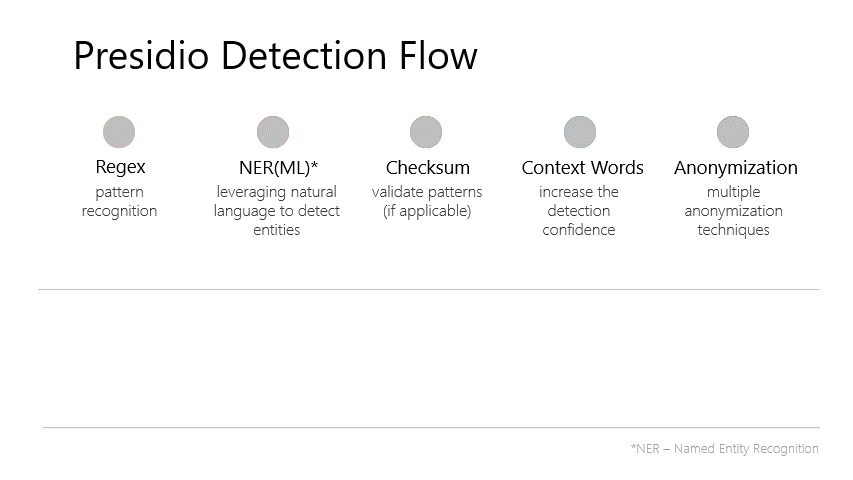
In a world driven by data, where every click, swipe, and form submission feeds into the vast ocean of information, safeguarding Personal Identifiable Information (PII) is paramount. Whether you're a data analyst or an IT security professional, understanding and managing PII has become a critical aspect of your role. Enter Microsoft Presidio, an innovative tool designed to help organizations like yours identify and protect PII in unstructured data. Saptarshi Dutta Gupta of Statistics Canada recently published an article demonstrating how they maintain personal data privacy. When conducting hundreds of surveys every year, Statistics Canada is obligated to protect private information under two separate federal privacy laws enforced by the Office of the Privacy Commissioner of Canada, namely the Privacy Act and the Personal Information Protection and Electronic Documents Act (PIPEDA). Statistics Canada utilizes Microsoft Presidio and to comply with these privacy laws. As a proud partner of Microsoft, this blog post will explore how Microsoft Presidio, with its unique features and capabilities, supports data security while ensuring compliance with privacy laws.
The Essence of PII and Its Protection
To kick off, let's clarify what Personal Identifiable Information (PII) entails. In simple terms, PII refers to any data that can be used to identify an individual. This includes everything from names and addresses to social security numbers and medical records. Protecting PII is crucial because unauthorized access can lead to identity theft and other fraudulent activities.
In today's digital age, organizations collect vast amounts of data about their customers, employees, and partners. This data often contains PII. With increasing data breaches and cyber-attacks, protecting PII is no longer optional—it's a necessity. Various privacy laws, such as Canada's Privacy Act and the General Data Protection Regulation (GDPR) in the EU, mandate strict data protection measures.
Understanding Anonymization Techniques
Before we deep-dive into Microsoft Presidio, it's essential to distinguish between anonymization, de-identification, and pseudo-anonymization—terms frequently used when discussing data privacy.
Anonymization involves removing or obscuring identifiable information so that it can't be linked back to an individual. It ensures that data remains anonymous, impossible to trace back to its source.
De-identification focuses on removing specific identifiers from a dataset, like names or addresses, making it harder to connect the data to individuals.
Pseudo-anonymization replaces direct identifiers with pseudonyms, allowing data to be relinked using additional information stored separately. It's a practical approach when data needs to be used across different systems while maintaining privacy.
The Complexity of PII in Unstructured Data
Anonymizing structured data, like databases, is relatively straightforward due to established mathematical models such as k-anonymity and differential privacy. However, the real challenge lies in unstructured data—text, images, and more. Identifying PII in such data demands more than simple rule-based models.
This is where Natural Language Processing (NLP) comes into play. Technologies like Named Entity Recognition (NER) help identify named entities, such as names, locations, and organizations, within text. Tools like SpaCy and BERT have been used for text anonymization, but Microsoft Presidio takes it a step further.
Why Microsoft Presidio?
Microsoft Presidio, derived from the Latin word "praesidium" meaning protection, is a robust solution for managing sensitive data. It excels in identifying and anonymizing private entities like credit card numbers, social security numbers, and more within text and images. One of its standout features is its scalability, making it suitable for organizations with extensive data sets.
Presidio is designed to be flexible and adaptable, allowing organizations to customize its use to meet specific needs. It supports both fully automated and semi-automated PII de-identification across multiple platforms, making it a versatile tool for businesses of all sizes.
Key Features of Microsoft Presidio
Presidio offers a range of features to ensure effective PII detection and anonymization:
- PII Recognition: Utilizing a variety of methods such as Named Entity Recognition, regular expressions, and rule-based logic, Presidio identifies PII in multiple languages. It also supports connecting to external PII detection models for enhanced capabilities.
- Customization Options: Presidio allows users to customize PII identification and anonymization according to their needs. It's compatible with Python, PySpark workloads, Docker, and Kubernetes, providing flexibility in implementation.
- Multimodal Support: Beyond text, Presidio includes a module for redacting PII in images, offering comprehensive data protection across formats.

Image Source: Microsoft
Presidio Analyzer in Action
The Presidio Analyzer is a Python-based service for detecting PII entities in text. It leverages predefined and custom recognizers, employing Named Entity Recognition, regular expressions, and context-based logic. This adaptability allows the Analyzer to identify a wide range of PII entities, making it a powerful tool for data analysts and IT professionals.
Installing the Presidio Analyzer is straightforward, with options for pip, Docker, or building from the source. Once installed, running an analysis requires just a few lines of code, making it accessible for those with basic programming knowledge.
To extend its detection capabilities, users can create new classes based on the EntityRecognizer framework. This flexibility ensures that Presidio remains effective in diverse data environments.
Multi-Language Support for Global Reach
Presidio’s PII detection isn’t limited to English. It supports multiple languages, making it suitable for global organizations. By updating context words or adding new recognizers, users can improve results for specific languages, ensuring accurate PII detection regardless of linguistic diversity.
Customizing NLP Models for Enhanced Performance
Presidio’s NLP models can be customized to suit specific needs. Users can leverage existing NLP frameworks like SpaCy, Stanza, and Transformers to train or download models. This adaptability allows organizations to fine-tune Presidio for their unique requirements, ensuring optimal performance in PII detection.
The Power of Presidio Anonymizer
The Presidio-Anonymizer package includes both anonymizers and deanonymizers. Anonymizers replace PII text with other values, using operators such as replace, redact, hash, mask, encrypt, and more. Deanonymizers, on the other hand, reverse the anonymization operation when necessary.
Presidio Anonymizer handles various anonymization scenarios, ensuring that sensitive data is appropriately protected. From single PII entities to overlapping entities, Presidio provides comprehensive solutions for safeguarding information.
In Summary
In conclusion, Microsoft Presidio is a valuable tool for organizations seeking to protect sensitive data. Its flexible design, comprehensive PII detection capabilities, and customization options make it an asset for data analysts and IT security professionals. Whether you’re dealing with text or images, structured or unstructured data, Presidio ensures that PII is properly managed and governed.
At Bronson Consulting, we’re proud to partner with Microsoft in delivering cutting-edge data protection solutions. If you’re interested in learning more about Microsoft Presidio or exploring how it can benefit your organization, we invite you to reach out to our team. Let’s work together to safeguard your data and ensure compliance with privacy laws.





